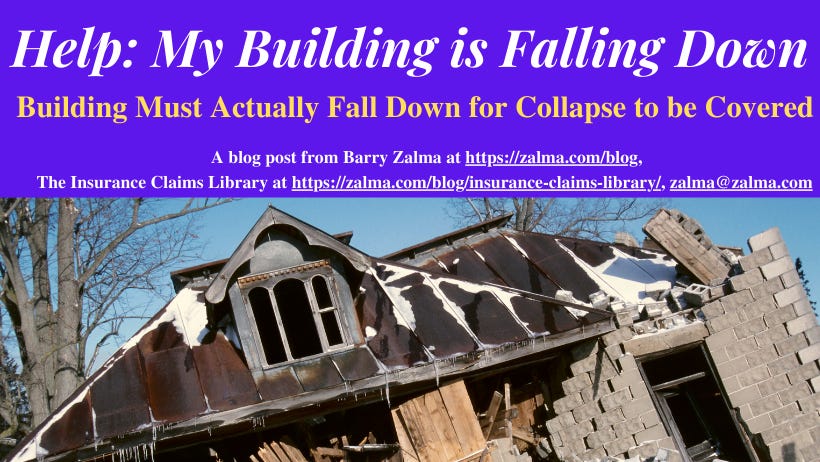Read the full article at https://lnkd.in/gFc9T3vC and see the full video at https://lnkd.in/gp63kWkw and at https://lnkd.in/gX5TCU2W and at https://zalma.com/blog plus more than 4400 posts.
Windcrest Owners Association filed a lawsuit against Allstate Insurance after the company declined a claim for property damage to a building in its condominium development. Allstate moved for summary judgment, alleging that the property damage was not covered as a “collapse” and was excluded from coverage because it resulted from faulty construction and maintenance. The trial court granted summary judgment dismissing Windcrest’s claims.
In Windcrest Owners Association v. Allstate Insurance Company, an Illinois company, State Farm, No. 82836-3-I, Court of Appeals of Washington, Division 1 (December 12, 2022) Windcrest sought payment to repair a building in severe distress as a result of wear, tear, and defective construction under a “collapse” coverage. The Court of Appeals read the full policy and applied its language to the facts presented by construction experts.
FACTS
Windcrest Condominiums notified Allstate of a property damage claim based on a structural report prepared by Dibble Engineers. The report noted decay consistent with substantial impairment of structural integrity to one of the buildings. Windcrest sued Allstate, alleging breach of contract and bad faith.
ANALYSIS
The Allstate policy defines “collapse” as follows: “a. Collapse means an abrupt falling down or caving in of a building, or any part of a building, with the result that the building or part of a building cannot be occupied for its intended purpose..."
Windcrest produced no evidence that the structures were no longer habitable.
Since the evidence showed no abrupt or sudden falling down of any part of a building such that it could not be occupied for its intended purpose the Allstate policy explicitly excluded coverage.
ZALMA OPINION
Allstate provided coverage to insured’s whose property collapses. However, it provided a clear and unambiguous definition of the word “collapse.” Once a contract is written an accepted by an insured the wording cannot be changed by a court to provide the coverage the insured would like and must apply the coverage written in the policy.
(c) 2022 Barry Zalma & ClaimSchool, Inc.
Subscribe and receive videos limited to subscribers of Excellence in Claims Handling at locals.com https://lnkd.in/gfFKUaTf.
Go to substack at https://lnkd.in/gEEnV7Dd
Consider subscribing to my publications at substack at https://lnkd.in/gEEnV7Dd
Barry Zalma, Esq., CFE, is available at http://www.zalma.com and zalma@zalma.com
Subscribe and receive videos limited to subscribers of Excellence in Claims Handling at locals.com https://lnkd.in/gfFKUaTf, http://www.zalma.com; http://zalma.com/blog; daily articles are published at
.





